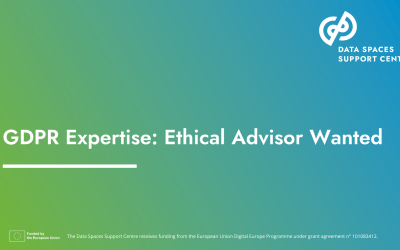Here are the 20 ideas that will compete in the Smart Business & Industry Challenge FI-WARE has launched and that will be held at Campus Party Brazil 2014.
Campuseros that are in Sao Paulo those days will see, first hand, how these ideas have been developed and how they are improved. During Campus Party all the teams will receive coaching from FI-WARE experts and the winning applications will go home with their own FI-WARE application… and plenty of money for the victorious team to celebrate 🙂
Good luck to all!
Smart Business & Industry finalists
The teams selected are from Spain (7), Ireland (3), Germany (2), Mexico (2), Brazil, Ecuador, Greece, Portugal, Venezuela and Italy.
Cloud Industry 2.0
Nixon Javier Rondon Rey and Leonardo Elbano, from Venezuela.
The system shall provide real-time monitoring of all business needs (water, electricity, heating, gas, security, health), and store the data on record, enabling automation of processes. It proposes a modernisation of any given company based on self-sustainability, such as the integration of photovoltaic systems that collect solar energy. Depending on the ratio of energy consumed by the company (from the energy produced by renewable energy systems) the system will automatically take the necessary steps to improve power consumption, either by disconnecting the company ‘s Mains (in the case of excess production in self-sustaining systems), providing energy to the local power grid or by connecting to the electricity grid for the acquisition of the difference in energy required for proper operation.
SmarTaxi
Federico López, Valeriya Zaytseva and Carlos García, from Spain.
SmarTaxi collects data about the location and condition of a vehicle in real time. The data is stored, processed and reaches the driver through Internet. This way the driver is able to access and view a “heat map” with colours that indicate areas of greatest concentration of potential customers. The only requirement is that the driver has a smartphone or tablet with Internet connection. This project that originated from the Polytechnic University of Valencia is intended increase taxi drivers income and improve city services.
Wadjet
Xavier Chao and Jorge Fernández, from Spain.
Wadjet is presented as an enterprise solution for systematic monitoring of field operations within a company, oferring SMEs a cost-effective solution to acquire better control and visibility of their field operations. The application is particularly suitable for fleets of vehicles and workforce management. For example: users will be able to monitor location, driving behaviour, speed, etc.
Ombudsman Office 2.0
Adriel Café and Diego Bonfin, from Brazil.
Ombudsman Office 2.0 aims to bring the government to citizens / businesses through an online service that promotes social participation, transparency and cooperativeness between them. O² is a service that will facilitate communication between citizens and government, the customer and the company. The submission of suggestions and criticism and/or reporting to public and private agencies are just some of the options it will offer. This service will allow companies and customers to work together to solve questions about city problems (in the case of a government) or about business matters (in tjhe case of companies).
Shelfz.com
Florian Klemt from Germany.
Shelfz.com is targeted at owners of shops and boutiques around the world and aims to connect their “physical” shops to the Internet. With it the products on the shelves will be represented and can be searched for online. An analysis of continuous data will recommend the most popular products and mark the location of the nearest store where they can be found. The owner may also benefit from the consumption data to give customers the best service and, thereby, increase his sales. For example, if someone finds an interesting item they want to purchase, he can see how to get to the store where the item is sold (with direct access to the map from their phones) and submit a check-in. After the check-in, the owner of the business will receive real time information on how to attend such customers from the moment they walk through the door.
Shake&Go
Sergio David López Rodríguez, from Mexico.
In the world of companies that need a better form of communication (invoices, sales orders, etc.) a large number of tools such as email, FTP, etc. have been created. All such documents and materials that are shared travel from one place to another. Shake & GO is an “FPS” (file processing as a service) that unites all wireless services using an app so SMEs can communicate in a simple way with partners, suppliers and clients. This can create an interesting ecosystem where it is easier to implement the transmission of documents between two points.
SmaHeater, the smarter heater
David Lechón and Deepak Mishra, from Spain.
The increase in electricity costs is a major concern for homes and offices. One of the main reasons is the use of heaters. These devices usually do not take into account outside temperature changes in real time and, therefore, use 100% of the energy available. SmaHeater proposes an innovative idea: use temperature sensors that measure indoor and outdoor temperatures and their integration with heaters as a solution for energy saving. This project can save a lot of energy in offices and improve district heating system in restaurants, hotels and in homes.
Context
Félix Joel López Salcedo and Julio Manuel García Martín, from Spain.
Context is a start-up that offers solutions based on the exchange of data through Bluetooth Low Energy (BLE) sensor network services. Its concept is simple: companies interested in these services will be marked by these sensors and will be in constant contact with the user via the app. In turn, the client will benefit from the sensors by being able to get the information he needs or to shop. For example, a user checks the app and see products from different brands that he finds interesting. When he clicks on any product he will get more details and options, such as adding products to a personal collection, see which friends have it in their collections or buy it, either online or by locating through GPS which is the closest stores that sell it.
Kituris
Edwin Marcelo Llauca Guallpa from Ecuador.
KITURIS is an integration platform and service with tourist information on hotels, resorts, restaurants, museums, attractions and more. Users can view the description of the location, services, special offers, address, access map, representative images, virtual 3D rides, etc. KITURIS recommends attractions in the form of notifications according to the location of the end user.
AmiCO
Ignatev Dmitrii, Kestutis Januskevicius and Dani Samer Bashou from Russia, Demark and Spain respectively. AmiCO is a GPS voice navigation system. With it you will be able to avoid distractions and eliminate the need to keep an eye on the screen while driving. A very intuitive, constantly updated navigation device.
MyCity4Me
Jesus Martin Gonzalez, Emiliano Bernués, Carlos Fernandez Bayona and José Mª Saldaña from Spain.
The goal of the proposed service is to improve daily relations between citizens and administrations, and organizations and companies, in order to jointly promote economic growth, leisure and culture. The proposal consists of a platform that allows the publication of some special, limited offer deals, offered by small companies. These deals can be also published by bars, restaurants, museums, theatres, gymnasiums, swimming pools, etc… Some examples: “Wine and skewer 1 € from 13h to 14h”, “2×1 theatre tickets from 17h to 19h” or “Special discount 20% off Shoes Panama Jack from 17h to 21h.”
SmartAdStore
Carlos Adalberto Albarrán, Cristina G. Escalante and Israel Tamay, from Mexico.
The main objective of this project is to apply intelligent mobile ads and electronic coupons. Thanks to these listings customers could get what they need almost instantly. This technology will be accessible to anyone who wants to open his sales and marketing system to a wide unexpected range of new customers.
Interact
Eurípides Petrakis, Stelios Sotiriadis, Kostas Stravoskoufos, Alexandros Preventis, Spyros Argyropoulos and Ioannis Pappas from Greece.
Interact is a project that unites motion sensors with gesture recognition. The basic idea is to allow people to use their hands to express themselves. This could be especially useful for different users (social networks) and people with special needs (e.g. hearing and speaking impaired people). The application would interpret up to 200 gestures and hand signals (e.g. “forgiveness”).
Smart Customer Support
Derick Leony and Victor Guerra from Spain and Austria respectively
This proposal aims to help SMEs improve the efficiency and performance of the customer service of their company. The application will use semantic technologies and machine-learning algorithms to analyse email queries sent by clients and automatically resolve them. In addition, Smart Customer Support will generate reports that allow further research and solutions given to customers of the company. In all it will provide valuable feedback for continuous improvement in business processes.
Galvyas
João Vieira, Débora Reis and Fábio Correia, from Portugal.
The idea focuses on sensors that allow us to look at the field from crop to harvest. The app sends the information being monitored, and data on soil or environment moisture, temperature and hours of sunshine/intensity, and so on. The user can control the situation remotely and take action, create alerts or share information of crop evolution with other users.
Appetitoo
Ottavio Sgrosso, Ivan Paudice, Marco Vladovich and Emilio Reppucci from Italy.
Appetitoo is a web platform that allows restaurant owners to communicate with their customers. Some of the features included in the app are: table reservation, ordering, promotional flash sales, events, opening times, reviews, multilingual menu, etc…
Carbon Control
Shane O’Sullivan, Darragh Kirby, Bill Craig and Frank Murray from Ireland.
The app can be used by SMEs to measure their carbon emissions (as well as other emissions of greenhouse gases) and also helps them to reduce their emissions through the creation of a Management System of Energy, which is specific to the size of the organisation. This saves organisations the cost of having to resort to outside consultants and experts to help in this area.
Voice Personal Consultant (VPC)
Tatiana Orlova and Yuri Orlov, from Ireland.
Communication from person to equipment requires user-friendly interfaces. Most of the attendees for voice work in closed form and automatically. Personal Voice Consultant (PVC) is a personal assistant that works thanks to voice recognition. Briefly, PVC is similar to Siri – assistant staff – but differs from others by the client, since it is possible to customize it.
FOODLOOP – Save it all
Christoph Müller-Dechent and Maria Rosario Trillo-Rivas from Germany.
FoodLoop offers the food industry supply chain and sustainable optimization solutions. Users can automatically commercialize high-quality fresh products, in real time and with lower prices as expiration dates approach so they can avoid waste and reduce costs. Consumers get offers directly to their mobile phones. The entrepreneurs maximize sales revenue while minimizing the loss of perishable products, and provide more affordable fresh food by offering discounts, special offers, etc….
FoneSense
Christian Ryder, Ireland.
FoneSense is a new mobile marketing platform that agencies can use to attract customers to the growing mobile advertising market. It uses the audio on smartphones and pays end users – smartphone owners – a reward every time the phone rings and the jingle is used. As a result, it provides advertising agencies a new channel for very targeted advertising as well as a solution to one of their biggest headaches: how to attract new consumers by moving away from traditional channels and increasingly using mobile media to entertain. Advertisers can reach their target audience through a mobile-telephone device that meets all their needs and will also provide them with detailed statistics regarding the use of their campaign.
>> And which are the 20 apps selected for the Smart City Challenge? Read them here: Ideas selected to compete in the FI-WARE Challenges: part II – Smart Cities.



